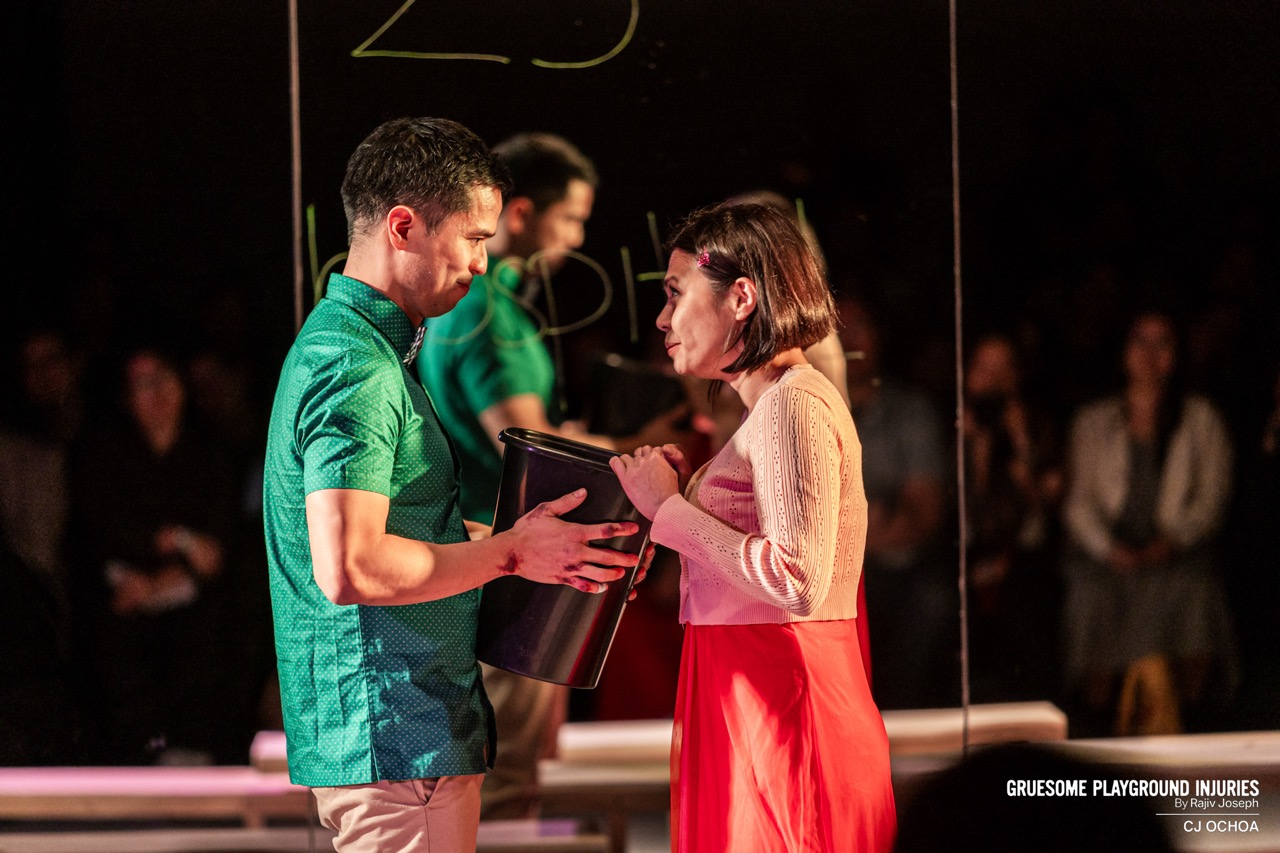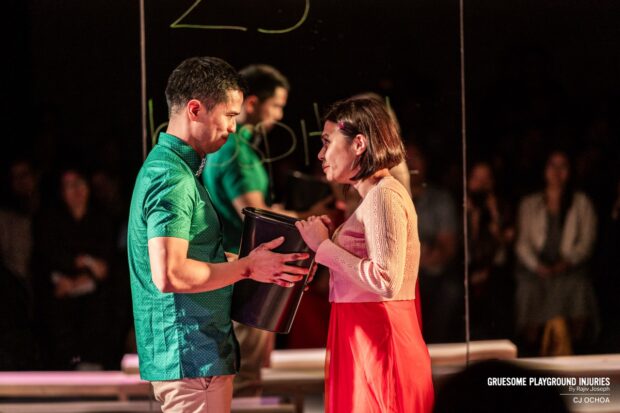
In less than two hours after the precincts closed, the elections seemed already decided. To say it happened unusually fast is an understatement; it happened even before some municipalities could begin their tallies, indeed even as some voters waited for the machines to replace the ones assigned them, which had broken down.
In our own barangay, San Lorenzo in Makati, the second case was true.
It’s the answer I got from seniors who had arrived much earlier than us and been stuck in their chairs for some time. After we were done, in about half an hour, Vergel observed that their line was finally moving again. But, apparently, as we were to learn from the news, voters elsewhere were not as lucky; some had to wait into the next morning.
Straight to shock
Back home, watching the news, results began to be posted so early, within the hour of the closing of the polls, we were not even given time to be anxious and nervous. We went straight to shock: overwhelming numbers were pouring for Ferdinand Marcos Jr., but just numbers, no source precincts, as has been the normal case.
Leni Robredo, although in second place, was so far behind him she would not even come close if the votes for the other candidates were added to hers. It felt uncanny to see a mutual validation between those numbers and the survey numbers, which themselves had raised misgivings for a number of reasons—from an environment of fear that did not conduce to reliable polling to questionable sampling.
If in previous elections there had been several hours of counting delays, the counting pace this time was dizzying, the numbers came in torrents, and television just kept posting them without question. I’m told at some point one question was asked: Where did the numbers come from? But, all the same, no one from the Commission on Elections (Comelec) came forward with a prompt answer.
Disturbing reports
Social media soon came out with disturbing reports, some with video clips—blatant vote-buying, cops themselves tearing up ballots, people filling in several ballots, voters being prevented from exercising their right for unknown reasons. To be sure, anomalies had been happening unchecked even before the elections. In any case, where do I myself look for answers, for reasoned affirmations or denials or clarifications?
I know it’s not all over yet—some counterchecking is being undertaken. But even so, I’ve not been myself since election night. This is not plain disbelief, more probably shock. My heart also feels somewhat broken. And it doesn’t help that the foreign press likes to portray us as a nation of stupid voters making the dictator’s son president.
Anyway, we tried very hard to sleep that night. For their part, the youth, mostly students, have taken matters into their own hands. After all, this is to them not just about another stolen election but a desperate fight for their own future, which they fear could be lost under another Marcos regime. Thus, by their noisy and assertive but peaceful massing in front of the Comelec building, they have begun to make their sentiments known.
A better plan
The morning after the elections, I woke up to a missed call.
It was from a favorite priest, and I knew exactly where he was—standing shoulder to shoulder with the young protesters. I woke up Vergel, and we both knew what to do.
We geared up—hats, cotton clothes, sneakers and a thermos of iced water. As we approached to cross Taft Avenue going toward Roxas Boulevard, Vergel realized we were color-coded for the day! I texted a barangay official to ask, hopefully, if, for some reason, the rule might have been suspended.
And there went all our patriotic intentions. These two would-be heroes for the day had to turn back and go home, where, in this late-morning summer boil, we probably belonged.
I couldn’t stop laughing, and Vergel, at first frustrated and embarrassed, was soon laughing with me. It all felt as cathartic as a good cry. Through the laughter I realized: But, of course, God always has a better plan, even when we are the last to know.
We suddenly felt lighter, seeing only God’s protection and love in everything that happens. And as we crossed back into our senior-friendly city, we felt safe from arrest—we seniors are exempt from color-coding. We couldn’t go home just yet, not after that missed chance at being seen by our young comrades stepping up along with them and assuaging sense of defaulting, of somehow failing them.
Instead, we went to Greenbelt for an early lunch, to discuss Plan B over humble pie.













































